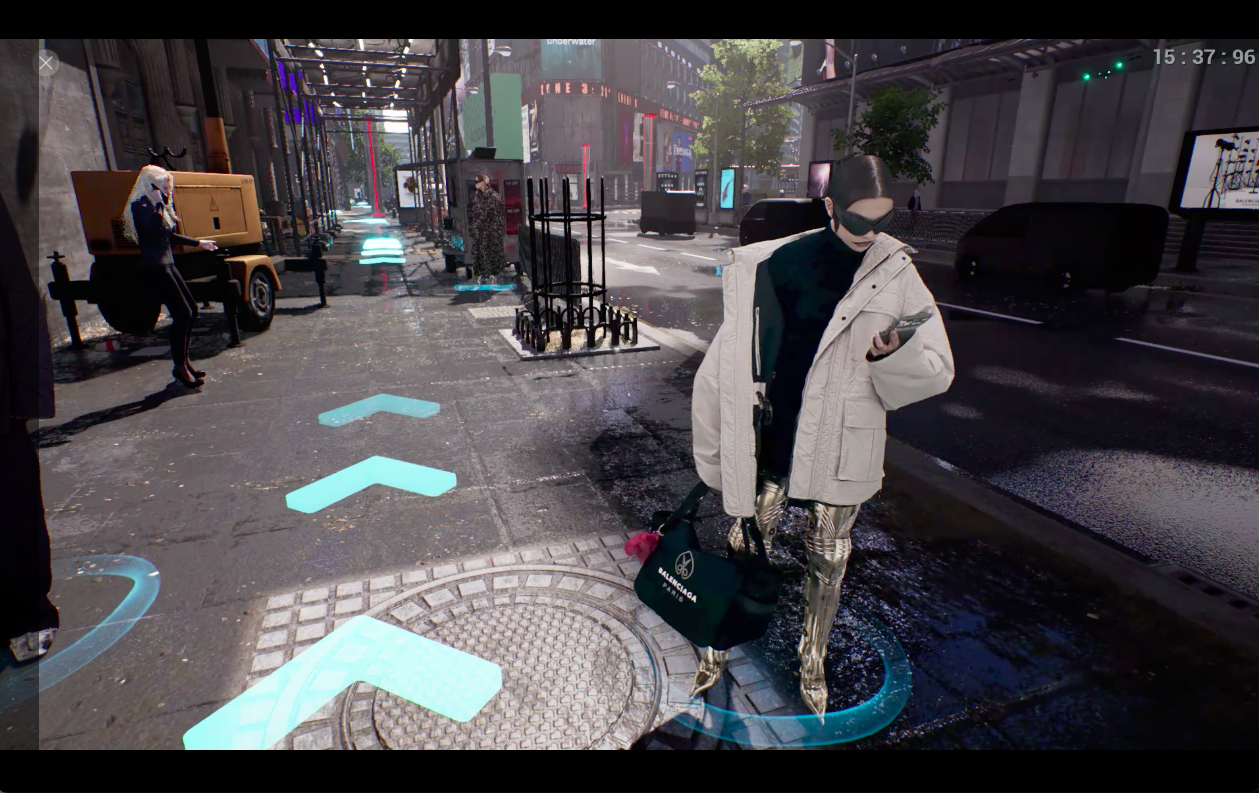We’ve read the 2021 predictions and trends from senior leaders in the media and marketing industry, but what about the younger generation? As part of its Digify programme, Livity asked the class of 2020 (18-25 year olds) to give their insight into the Trends that are important to the younger generation, and ones Brands can’t ignore in 2021.
Digify was an annual paid training and placement programme for 18-25 year olds to support brilliant, emerging and diverse talent in the creative marketing and digital industries. It was run over five years and created 60 roles for young people. For the last three years, it was part of the Mayor of London’s Digital Talent Programme.
At the beginning of this year, Digify was replaced by OPEN. Created by talent and culture consultancy, Hidden and youth-led creative business Livity with founding partners including LEGO, OPEN is a new programme for early careers talent with a focus on tackling the diversity crisis within the creative and marketing industries. Its mission is to replace the traditional graduate scheme for its partners, instead creating a pipeline of exceptional entry level talent who will be trained and ready for action.
Here are some of their thoughts:
Cancel Culture
by Dwayne Wilks
Cancel culture has done much good; it’s empowered consumers to combat forms of oppression, exploitation and appropriation from brands e.g. Victoria Secret’s misogynistic work culture and cultural appropriation. But it can inadvertently do more harm than good: on occasion, producing a mob mentality that can cause people to bypass the due diligence of doing thorough research. As well as, denying ‘guilty’ parties the chance for reconciliation beyond retribution.
With culture so often used as a vehicle to communicate campaigns, and the increased use of influencers/micro influencers, it’s more important than ever to deliver work that’s authentic, having teams that are as diverse as possible; a range of different lived experiences in the room will work to avoid a culturally tone-deaf or offensive campaign. Young people are less forgiving than ever before of cultural slip-ups. Using their voices across social media platforms, young people are holding individuals and companies accountable.
Young people will always identify an inauthentic communication from a company pandering to their sensibilities by trying to appear ‘woke’. A message that feels opportunistic, or in any way ingenuine, it is likely to do more harm than good.
Into the future: fashion, music and... gaming?
by Georgia Paes
Luxury fashion brands and the music industry are deep diving into gaming. From Gucci’s partnership with esports organisation Fnatic earlier this year to London-via-Lagos collective Vivendii, who's new streetwear collection takes inspiration from Tekken. Even Balenciaga has launched a video game: Afterworld: the Age of Tomorrow to display their AW21 collection. Fortnite’s concert with Travis Scott during the peak of the first lockdown back in April, gave us a glimpse into how we can redefine experiences that truly defy location and create new possibilities of engagement.

It’s no surprise that further alignment between these worlds is expected in 2021. It’s estimated 45% of the luxury and entertainment market will be made up of Gen Z ers by 2025. And by this year too, it’s estimated that virtual and augmented reality technology will be worth more than £65 billion. In light of the pandemic, it seems now more than ever there’s a real desire from both brands and their consumers to create authentic digital storytelling. By placing products and artists in video games we can create unique, experiential designs that form part of wider culture.
Well-being as Necessity Not Luxury
by Xae Cotterell
The health and well-being industry is often considered a luxury, many “self-care” or wellness products/services are exclusive and inaccessible to many. Brands need to find solutions that help shift the industry from exclusive to inclusive.
Those from ethnic minorities are most at risk when it comes to mental well-being. This is due to various factors, the biggest being racial trauma and discrimination. The burden of educating and fighting for these issues lays on the shoulders of those most affected, which can be both mentally draining and racially traumatic. Lack of representation in the media and health industry can lead to issues surrounding identity and mental wellbeing. And lack of representation can be said for many brands within the health & well-being industry that are white-washed, inaccessible and don’t consider the needs of the ones most affected. This needs to be addressed in 2021.
The current lockdown/pandemic has impacted young people’s mental well-being more than any other generation. The government has consistently used young people as a scapegoat for spikes in the virus, (from the BLM protests to Eat Out to Help Out) which possibly had a negative impact on their well-being. Boredom and loneliness were feelings young people stated to have during lockdown. But they remain optimistic about the future. At a time when a sense of community feels lost, brands need to find ways to positively involve and inspire community when targeting young people.
Due to the pandemic, the lack of time spent with nature has had a damaging effect on people’s mental well-being. People value the outdoors more than ever before, and despite the limitations, they want to/are still finding ways to connect with nature. Although the desire for being outdoors is high, many are still limited to time spent outside. Connecting with nature helps relieve stress, improve focus and physical health. Therefore, brands who focus on how to bring the outside in, are at an advantage. There is a new desire from young people for plants, natural colours and materials as well as technology that emulates natural sounds and visuals.
In 2021, when it comes to well-being, brands must:
- Represent and reconsider your audience – who are the ones most affected?
- Make the shift from luxury to necessity
- Promote optimism
- Inspire community
- Shift the blame away from young people
- Explore opportunity for the great indoors
Generation M: the untapped demographic
by Muhammad Abushiri
Particularly within the UK, the Muslim population are looking for brands that understand their values and look to fulfil their aspirations as Muslims. They are looking for brands that respect their decision to adhere to their faith and offer them a space to express themselves without compromising on their values and ethics.
Like any community, campaigns need to be driven by data-backed insights to build a meaningful connection that lasts. If brands get it wrong and are insensitive in their approach to the Muslim community, there is potential for backlash. However, if done right, Muslims are willing to spend, support, and advocate for you. Worldwide, the Muslim population is one of the fastest-growing demographic groups, yet they remain one of the most underserved. This presents a major opportunity for brands to craft an authentic role in British Muslim life - an opportunity that is too valuable for brands to ignore.
#ShopSmall
by Melanie Nogueira
Social networks were a huge driver of support to #shopsmall in 2020. The hashtag gained 34M posts on Instagram and 597.4M on TikTok. Our ‘For You’ page on TikTok was filled with small businesses promoting their products or telling the story of how they started.
Instagram’s creation of the ‘support local business’ sticker at the start of lockdown, preceded a rise in people sharing small business to their stories. Instagram’s redesign which includes a shop tab and shopping tag feature to reels, also aided this shift. And initiative to support black-owned businesses called Black Pound Day was created by Musician Swiss. In response to the ongoing Black Lives Matter movement and the light shining on small businesses. Not only is it essential to increase black business’ visibility but also the British economy.
From this we can see a shift in the way sellers are marketing to their audience. Being glitzy and corporate won't impress young people like it used to. Small businesses have more purpose and take their customers on the journey with them. Therefore, big brands in 2021 need to take a more humanistic approach to attract the attention of young people.
@mermaidstraw Thank you @hannaha923 ! And EVERYONE ELSE!! 💜💜 #packagingorders #asmr #asmrvideo #asmrpackaging #smallbusinesscheck #packingorders
♬ original sound - Mermaid Straw
Rolling into ‘21: pastime predictions
by Cecilia Morgan
Gliding across tarmac or dominating the board, keeping active in body and in mind, has led to roller skating and chess creating active communities, which are only set to grow in 2021.
Roller skating is undoubtedly a solitary sport, but not without its potential for ‘collectivity’. This perhaps accounts for why it has made a return in 2020. Pioneering skate company Rollerblade, saw a more than 300% increase in sales March-June of this year. Viral videos on TikTok and Instagram acted as catalysts for this global trend, with dancers-on-wheels such as @oumi_janta at the forefront.
@oumi_janta Altime fav song 😭 #rollerskate #jamskate #Berlin
♬ Funky Sensation (Original) - Gwen McCrae
Streaming sites have been a huge hit with 12.2 million new sign ups to Netflix since March. And with many more eyes on screens, look no further than the top Netflix shows when predicting the next big pastime among young people. The Queen’s Gambit in particular, which was crowned number one in 63 countries, ignited a surge of interest from young people in chess.
Retail data from the NPD suggests that chess set sales increased by 87% in the initial weeks following the show’s debut. People are playing, both online and IRL, more than ever before. The strong female lead character in The Queen’s Gambit, Beth Harmon, prompted young female interest in a historically male-dominated game.
